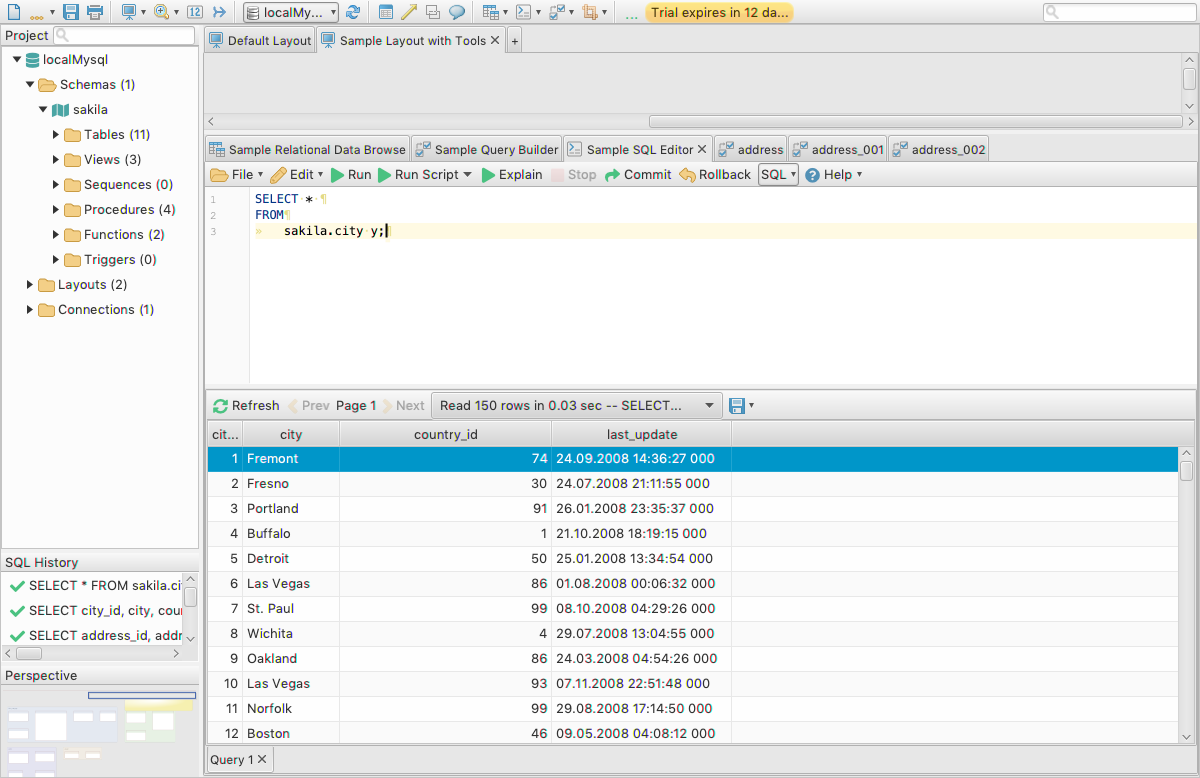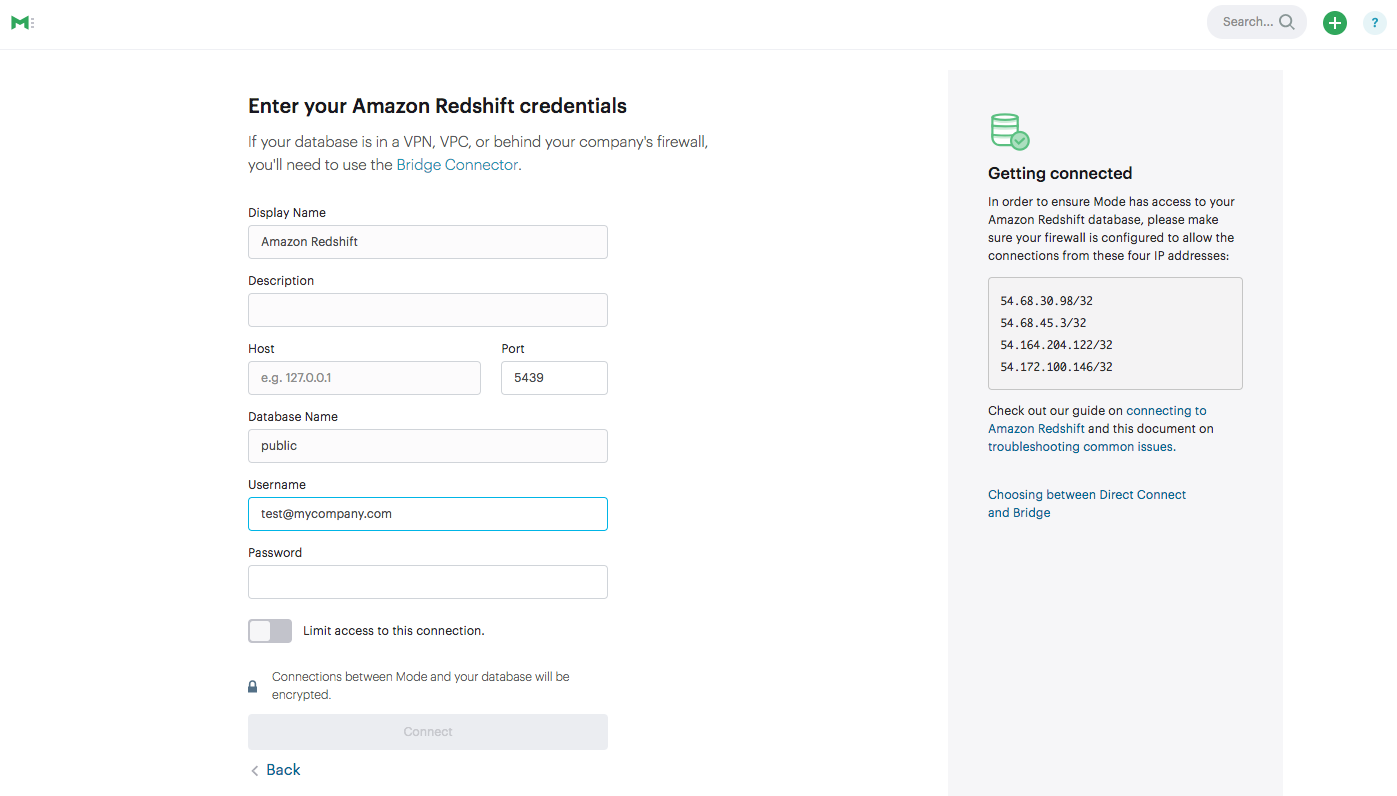

- DBSCHEMA DATABASE CONNECTION AUTHENTICATION DRIVERS
- DBSCHEMA DATABASE CONNECTION AUTHENTICATION PASSWORD
DBSCHEMA DATABASE CONNECTION AUTHENTICATION PASSWORD
The data source can be specified by passing an open DBI database handle, or by passing the DBI data source name, username and password.Īlthough the username and password are optional, it is best to call this method with a database handle or data source including a valid username and password - a DBI connection will be opened and used to check the database version as well as for more reliable quoting and type mapping. Returns a list of SQL `CREATE' statements for this schema. Returns the specified DBIx::DBSchema::Table object. Returns a list of the names of all tables. addtable TABLE_OBJECTĪdds the given DBIx::DBSchema::Table object to this DBIx::DBSchema. If there is an error, returns false and puts an error message in $DBIx::DBSchema::errstr save FILENAME Loads a DBIx::DBSchema object from a file. The method is only available if there is a DBIx::DBSchema::DBD for the corresponding database engine (currently, MySQL and PostgreSQL). This uses database-native methods to read the schema, and will preserve any non-portable column types. new_native DATABASE_HANDLE | DATA_SOURCE USERNAME PASSWORD Ĭreates a new DBIx::DBSchema object from an existing data source, which can be specified by passing an open DBI database handle, or by passing the DBI data source name, username and password. Note that this method only uses "ODBC" column types it does not require or use an ODBC driver.
DBSCHEMA DATABASE CONNECTION AUTHENTICATION DRIVERS
Although primary key and (unique) index information will only be read from databases with DBIx::DBSchema::DBD drivers (currently MySQL and PostgreSQL), import of column names and attributes *should* work for any database. Use this to import a schema that you wish to use with many different database engines. This uses the experimental DBI type_info method to create a schema with standard (ODBC) SQL column types that most closely correspond to any non-portable column types. new_odbc DATABASE_HANDLE | DATA_SOURCE USERNAME PASSWORD Ĭreates a new DBIx::DBSchema object from an existing data source, which can be specified by passing an open DBI database handle, or by passing the DBI data source name, username, and password. See DBIx::DBSchema::DBD, "Driver Writer's Guide and Base Class". Assistance adding support for other databases is welcomed. DBIx::DBSchema will attempt to use generic SQL syntax for other databases. Sybase and Oracle drivers are partially implemented. You can transform one schema to another, adding any necessary new columns, tables, indices and foreign keys.Ĭurrently supported databases are MySQL, PostgreSQL and SQLite. You can write SQL CREATE statements statements for different databases from a single source. You can save the schema to disk and restore it in a different process. You can read the schema from an existing database. Using this module, you can create a database schema with an OO Perl interface. This module implements an OO-interface to database schemas.

Use DBI qw(:sql_types) $schema = pretty_read DBIx::DBSchema \%hash DESCRIPTIONĭBIx::DBSchema objects are collections of DBIx::DBSchema::Table objects and represent a database schema.

$DBIx_DBSchema_table_object = $schema->sql($dsn, $username, = $schema->sql($dsn) #doesn't connect to database - less reliable

$schema = load DBIx::DBSchema "filename" or die = $schema->tables $schema = new_native DBIx::DBSchema $dsn, $user, $pass $schema = new_native DBIx::DBSchema $dbh $schema = new_odbc DBIx::DBSchema $dsn, $user, $pass $schema = new DBIx::DBSchema = new_odbc DBIx::DBSchema $dbh DBIx::DBSchema - Database-independent schema objects SYNOPSIS use DBIx::DBSchema


 0 kommentar(er)
0 kommentar(er)
